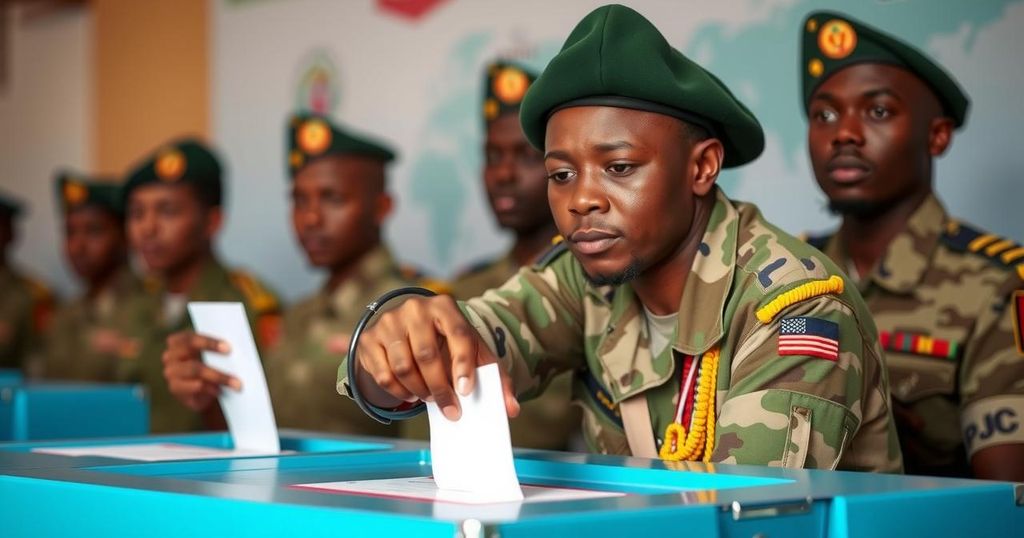Chad holds triple elections after three years of military rule, while opposition parties boycott claiming fraud in previous elections. Concerns over ballot integrity and electoral legitimacy highlight the challenges facing the already tense political environment. With soldiers and police voting early, the overall atmosphere underscores the contentious relationship between the government and its critics during this pivotal moment for the nation.
On Sunday, voters in Chad cast their ballots for legislative, provincial, and local elections, marking a critical phase in a promised political transition following three years of military governance. However, opposition parties are boycotting the elections, asserting that the legitimacy of last May’s presidential election was undermined by fraud and irregularities. This boycott is expected to favor candidates affiliated with Marshal Mahamat Idriss Itno, who has been in power since 2021 following the death of his father, former President Idriss Deby Itno.
Opposition leader Succes Masra deemed participation futile, stating, “It is better to stay at home,” referring to a fraudulent electoral system. The Democratic Party of the Chadian People (PDPT) raised concerns about alleged ballot tampering, reporting the disappearance of over a thousand ballots intended for Bongor. Polling stations have been established for approximately eight million registered voters, monitored by foreign observers amidst increasing tensions from jihadist threats and civil unrest.
Chad’s last legislative elections occurred in 2011, with subsequent elections delayed due to various crises, including security threats and the COVID-19 pandemic. Marshal Itno’s rule is marked by persistent claims of authoritarianism, with Masra recalling October 2022 events which led to significant violence against opposition demonstrations. Despite government efforts to suggest a positive electoral atmosphere, a strike by online journalists protesting governmental restrictions has resulted in a substantial news blackout surrounding the elections. Furthermore, Chad’s private press is boycotting coverage due to a lack of government subsidies, exacerbating concerns over transparency and fairness in the electoral process.
Chad has been under military rule since 2021 following the death of long-standing President Idriss Deby Itno. His son, Marshal Mahamat Idriss Itno, assumed power and has since faced allegations of autocracy and electoral fraud. The current elections are framed as a step towards a democratic transition, despite widespread opposition boycotts due to accusations of illegitimacy stemming from previous electoral processes. The political situation is further complicated by jihadist activities in the region and internal unrest, which have historically impacted governance and political stability in Chad.
The elections in Chad represent a significant moment in the country’s turbulent political landscape, dominated by political boycotts and allegations of electoral fraud. The ruling government’s portrayal of the elections as a step toward democracy contrasts starkly with the perspectives voiced by opposition leaders and civil society. As voting proceeds under vigilant observation, the legitimacy of the electoral process and the future direction of Chad’s governance remain contentious issues moving forward.
Original Source: www.france24.com






